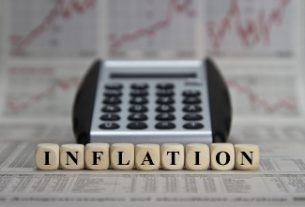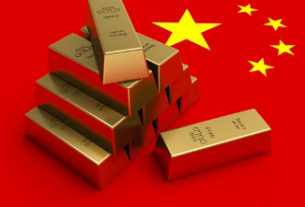With stock markets reaching another record high this week, albeit just barely, even those who strongly believe that a recession is just around the corner are beginning to have second thoughts. That’s only natural, as stock markets have been essentially in a holding pattern for nearly two years. After breaking through multiple thousand-point barriers beginning in 2016 and moving into 2017, the Dow Jones has had to really struggle over the past two years to gain another 1,000 points.
Watching this market is like watching a slow motion train wreck. You know it’s going to end badly, but it’s just taking forever to occur. The temptation then is to keep your money in stock markets just a little bit longer. After all, what can it hurt to keep your money in for a few more weeks or a couple more months? Don’t you want to eke out every single little gain you can?
The danger is that if you remain overexposed to stocks, you may not get out before the crash comes. We’ve seen so many dips in stock markets over the past two years, with subsequent recoveries, that investors may not perceive the final crash until it’s too late. They may hang on too long, thinking that there will be another recovery up to another record high, but it won’t come and they’ll lose tens or even hundreds of thousands of dollars from their retirement accounts.
Investment powerhouse Fidelity is warning that many of its baby boomer clients are overexposed to stocks, taking on too much equity risk in a market that is at risk of a downturn. Over one-third of its clients are over-invested in stocks, and 10% are invested 100% in stocks. When stock markets finally come crashing down to earth, those investors will find out the hard way that stocks are very much a double-edged sword.
The massive gains in stock markets over the past few years have been buoyed by three factors that could evaporate instantaneously: corporate stock buybacks, central bank money creation, and constant reports of positive trade news. Those have kept stock markets afloat for over a year, but there’s no telling when that support will disappear. When it does, many whose retirement hopes are pinned on their 401(k) account balances will be sorely disappointed.
Central Bank Money Creation
Any time asset prices inflate across the board, you have to point the finger at central bank monetary policy. In this case, the trillions of dollars created by the Federal Reserve in response to the financial crisis have finally traveled through the economy to boost stock prices.
Elevated stock markets are always the highlight of the last phase of an economic bubble, and this bubble is no different. Stock markets often lag the actual performance of the economy and don’t begin their crash until the economy is at or close to a recession.
The last time stock markets peaked was in October 2007, a mere two months before the economy was later judged to have entered recession. Even after the recession started in December 2007, stocks remained elevated. It wasn’t until later in 2008, nine months after the recession actually started, that stock markets began to see huge and worrying drops.
This time around likely won’t be much different. All the warning signs are already there that a recession is just around the corner, it’s just a matter of time before it happens. And once it does, stock markets will already be declining. Investors who are overly exposed to stocks may not realize until too late that they’re losing money and that they won’t be able to gain it back anytime soon.
Corporate Stock Buybacks
Central bank quantitative easing and low interest rates have combined to create a frenzy of corporate stock buybacks. Companies can borrow money at historically low rates and use that money to buy back company stock. That enhances earnings per share, a key metric used in rewarding executives for their performance. It also enriches corporate insiders who are often gifted lavish stock options, and enhances insider control over corporations.
In fact, the primary factor behind soaring stock markets has been the huge amount of corporate buybacks that have taken place over the last several years. While corporations have been net buyers of stock, other investors have been net sellers. Once these corporate buybacks come to an end, the major price support for stock markets will collapse.
Trade War Hopefulness
We’re still embroiled in the midst of a trade war with China that shows no signs of stopping anytime soon. In fact, tariffs are set to increase again on December 15, with another $160 billion of Chinese imports set to become subject to new 15% tariffs.
It seems that every time President Trump tweets about a trade deal with China being imminent, stock markets get a big boost. That has happened time and again, yet there still is no trade deal. Are stock market investors really that optimistic that a trade deal will take place? Or will they finally realize that all the positive news is just a bunch of hot air calculated to boost markets?
Don’t Get Caught Out
It’s too easy to dismiss talk of recession and financial crisis as a bunch of Chicken Little speculation. After all, stock markets are reaching records, unemployment rates are low, and so everything should be alright with the economy, right?
Unfortunately that’s an over simplistic way of looking at the economy, which is showing real signs of weakness right now. A majority of wealthy investors are already taking steps to protect their wealth in the event of a recession, as they don’t want to risk losing their shirts when stock markets start to crash.
But it isn’t just the super-wealthy who can minimize their exposure to stocks. Ordinary investors can roll over their existing retirement assets from a 401(k), 403(b), TSP, or similar retirement account into a gold IRA, allowing them to protect their existing retirement savings while benefiting from the protection that gold affords them.
When the market crash finally comes, it will be too late for many investors to change course. Unless they make the decision now to protect their retirement investments, they’ll be watching in disbelief as the stocks they thought would provide for their retirement turn into the reason they’ll have to delay their retirement instead.
This article was originally posted on Goldco.





